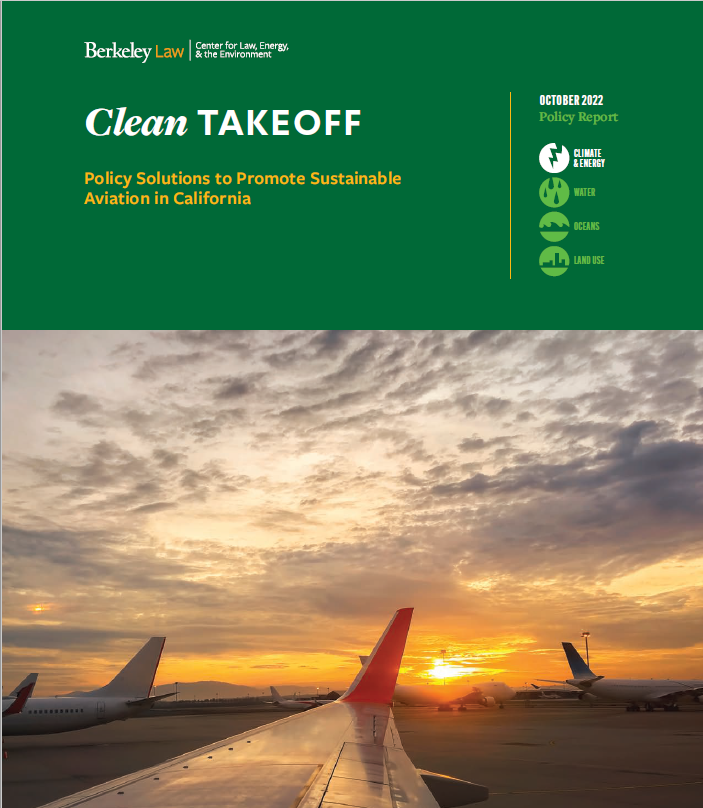What actions can California policy makers take to help decarbonize the state aviation sector? CLEE’s new report, Clean Takeoff: Policy Solutions to Promote Sustainable Aviation in California, describes opportunities to advance sustainable aviation in California.
Airplane travel is responsible for more than 2 percent of global carbon dioxide (CO₂) emissions, with non-CO₂ emissions raising the total climate impact further. While no existing zero-emission technologies can power all flights today, sustainable aviation fuel represents the most promising immediate solution to reduce emissions from aviation and will remain key to decarbonizing long-haul aviation, even in 2050.
In response, Governor Newsom called for a 20 percent clean fuels target for the aviation sector in July 2022, and the steps described in Clean Takeoff could help the state achieve those goals while maximizing air quality and economic co-benefits in communities near airports and production facilities.
Based on input from a stakeholder convening of industry leaders, advocates, academics and other stakeholders, the CLEE report recommends that state leaders, including the governor, Air Resources Board and legislature, boost in-state sustainable aviation fuels by:
- Developing a comprehensive long-term plan to decarbonize in-state aviation fuels by a deadline established by the legislature
- Taxing or levying a carbon fee on conventional aviation fuel and using the proceeds to fund research and development, where consistent with federal law
- Creating a standalone, mandatory low carbon fuel standard exclusively for aviation fuels, where consistent with federal law
- Implementing permit-streamlining pathways for priority sustainable aviation fuels
- Drafting a comprehensive sustainable aviation fuel feedstock sustainability framework
- Facilitating offtake agreements, contracts-for-differences (where the government pays the fuel producer any difference between the market price and a contractual floor for a set period of time), low-interest loans, and commercial partnerships to boost sustainable aviation fuel supply and demand
In addition to boosting near-term sustainable aviation fuel, these actions can simultaneously support development of long-term solutions, such as electrification, hydrogen fuels, and improved airframe design, among others.
Ultimately, California is well positioned to advance these technologies and fuels, given its pioneering role developing programs that have boosted on-road zero-emission vehicles, as well as its position as a major economy with 12 international airports and numerous in-state flights.
To achieve this vision, state leaders will need to engage all stakeholders, including airlines, airports, affected communities, labor, and agricultural leaders, in order to boost a market for sustainable aviation that can scale globally.
Download the report here.
CLEE hosted a webinar on this topic on November 7, 2022 from 9-10am PT. Panelists included Dan Adler (California Infrastructure and Economic Development Bank), Nikita Pavlenko (The International Council on Clean Transportation), and Erin Cooke (San Francisco International Airport).
Contact Ethan Elkind for more information.
